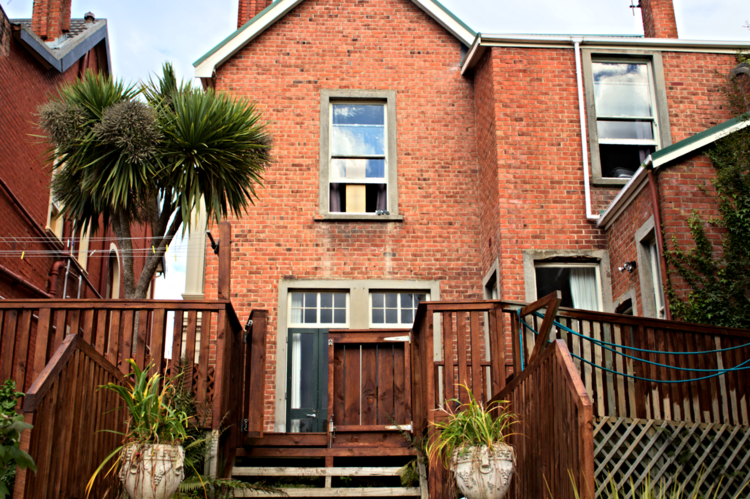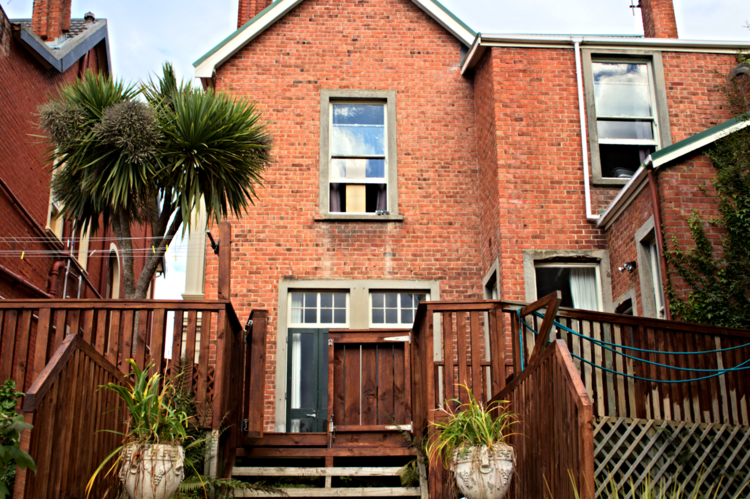Q&A: How Moana House achieved 100% Covid vaccination

People using drugs are at greater risk from Covid-19, and yet they are the least-vaccinated group in New Zealand.
Only 14% of people in contact with addiction services were fully vaccinated as of the start of September, compared to 31% of the general population.
The best way to reach these people is through the organisations and people they trust – like Moana House in Dunedin, which has managed to achieve a 100% vaccination rate among tangata whaiora in its residential programme and over 90% in its after care programme. We asked Programme Director Claire Aitken how they did it.

The entrance to Moana House - a red brick building with trees outside, wooden fence and and large planters - Moana House has managed to achieve very high vaccination rates, due to an overall culture of manaakitanga. IMAGE: supplied.
Q Why do you think vaccination is important?
All the whaiora we work with have high tinana (physical) health needs as well as all other areas as well, and because of their history of incarceration, they have health needs that have not been met or not met well. It is important that all vaccinations are an option, not just Covid. For example, we offer all staff and whaiora hepatitis screening then vaccination, hepatitis C screening then treatment, and any childhood vaccinations that were missed are followed up by our GP as a matter of course. So Covid is simply another option.
Q What strategy did you use to get such a high vaccination rate?
As we have a culture here of how important tinana needs are and GP appointments are normal and we pay for them, this it is an ordinary part of our culture.
Q Run us through how it was implemented – from identifying the problem, to discussions with staff/others, to rolling it out.
Our quality management Person, Cathy, contacted Southern District Health Board (SDHB) about running a clinic here. We did not initially get a timely response, so I contacted someone else in SDHB who knows our work and is very supportive and it happened.
We invited anyone to come who is connected to us: our staff, current whaiora, past whaiora and their whanau. We ended up with about 50 people. We set aside our new space Matua Raki, which has a large room divided into two. We had doctors on one side, everyone else on other. People played music, we started with kai and we ended with a thank you to the team who came, waiata and karakia.
Q Did you expect to get such a high uptake?
As it’s a part of our culture here, Covid information is circulated constantly, with a staff member allocated to Covid Welfare checks for staff and whaiora and whanau. This all helped.
Q Why do you think it worked?
It’s part of an overall culture of manaakitanga, not just Covid, but where doctors’ visits, physio checkups, optometrists, and dentists are all provided. We have food where everyone eats together, food parcels and vouchers where needed. So it is normalized. It is not just “A Covid” thing.
Q How did you approach whaiora? Did you encounter any mistrust, and if so, how did you satisfy their concerns?
We talked openly, provided lots of initial information and brochures around the whare, mask wearing , extra cleaning. It’s all a daily thing.
Q As you know, there are generally low rates of vaccination among Māori. Is there anything others can learn from your experience, to help persuade other Māori people to get vaccinated?
Be open, honest, provide good info and where focus on physical health is a normal thing then it becomes part of it. Also recognise that it is a choice and you cannot make people do this. Ensure people can get to where they need to go and appointments paid for where necessary.
Q Any other advice to share with other organisations that want to reach out to their people?
Use this as a way of sharpening up an increased consideration on tinana needs and ensure you allocate money in budgets to cover it. Don’t bill the whaiora or the whanau. We are funded for this.
Recent news

Reflections from the 2024 UN Commission on Narcotic Drugs
Executive Director Sarah Helm reflects on this year's global drug conference
What can we learn from Australia’s free naloxone scheme?
As harm reduction advocates in Aotearoa push for better naloxone access, we look for lessons across the ditch.

A new approach to reporting on drug data
We've launched a new tool to help you find the latest drug data and changed how we report throughout the year.

